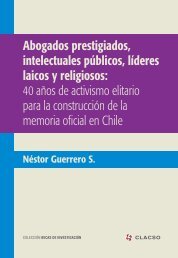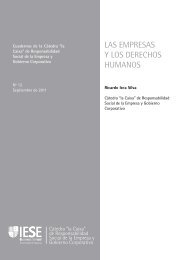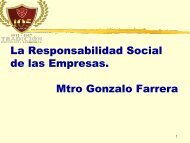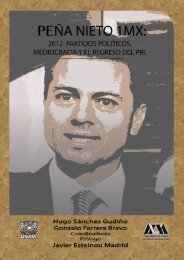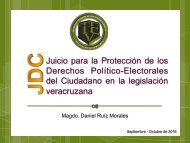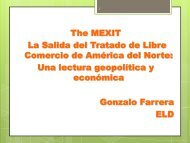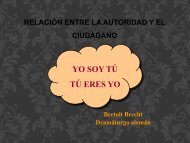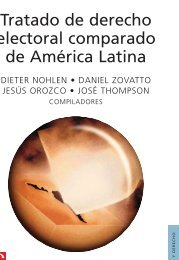0745685749 enemies democracy
You also want an ePaper? Increase the reach of your titles
YUMPU automatically turns print PDFs into web optimized ePapers that Google loves.
32 The Inner Enemies of Democracy<br />
seems within reach. In the first place, we must provide<br />
ourselves with good laws. Revolutionary France consumed<br />
constitutions at a breakneck pace. Condorcet<br />
himself put one such constitution forward; in the public<br />
debate on it, Saint-Just, a prominent political figure,<br />
proposed his own project, in which he laid out a major<br />
role for the Assembly which he was addressing. His<br />
words are worth recalling: ‘The Legislator commands<br />
the future; there is no point in his being weak; it is for<br />
him to will the good and to perpetuate it; it is for him<br />
to make men what he wants them to be.’ 2 The malleable<br />
human material is placed in the hands of the legislator,<br />
that is to say of the members of the Assembly, or<br />
rather those who control them. Once the good has<br />
been attained, it will of course need to be ‘perpetuated’:<br />
in other words, the use of violence cannot stop, the<br />
Revolution will be followed by the Terror. This does<br />
not result by happenstance, but from the very structure<br />
of the project. As the highest good is at stake, all paths<br />
taken to reach it are good (‘there is no point in his being<br />
weak’) and we are entitled to destroy those who oppose<br />
it, as they have ipso facto become an incarnation of evil:<br />
obstacles can only come from a bad will. The next step<br />
will be the transformation of this means into an end:<br />
Terror and the state institutions it requires will absorb<br />
all the forces of power, and the guillotine will never rest<br />
(Rabaut Saint-Étienne will be one of its victims, Saint-<br />
Just another).<br />
We see that, while claiming to draw on the ideal of<br />
equality and freedom, what I call here (to remind us of<br />
its religious origins) political messianism – a messianism<br />
without a messiah – had its own final goal (establishing<br />
the equivalent of heaven on earth), as well as specific<br />
ways to achieve it (Revolution and Terror). In its quest<br />
for a temporal salvation, this doctrine holds no place for<br />
God, but preserves other features of the ancient religion,<br />
such as blind faith in the new dogmas, fervent belief




